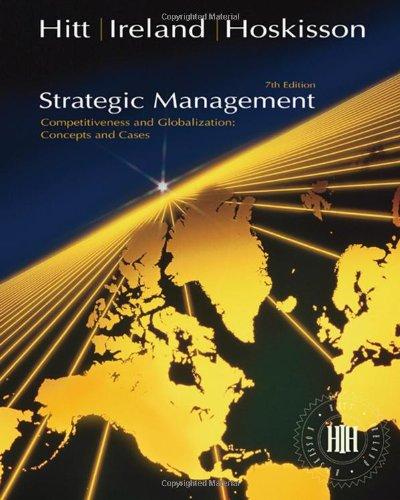By the 1990s, top-level managers at Wal-Mart Stores (WMT) had concluded that successful ventures into markets outside
Question:
By the 1990s, top-level managers at Wal-Mart Stores (WMT) had concluded that successful ventures into markets outside the United States were critical to the firm’s long-term growth in sales and profitability. A strong, cost-control-oriented corporate culture, a highly efficient distribution system, and market power were competitive advantages on which Wal-Mart’s domestic success had been built. Executives felt that being able to duplicate these competitive advantages would be critical to its efforts to effectively compete in economies other than its domestic U.S. market. In considering how to do this,Wal-Mart’s top-level managers decided that different modes of entry should be used to enter different markets. This decision found Wal-Mart using multiple modes of entry rather than a single mode of entry into international markets.
Using materials in this chapter, prepare answers to the following questions with respect to each of the countries listed in Part One of the exercise.
• What factors and conditions influenced Wal-Mart to select the entry mode it used to enter each of the five countries?
• In your view and given your understanding of the materials in this chapter, what made each country-specific entry mode superior to the other entry modes?
• In each country, did Wal-Mart make any significant changes in terms of ownership and control of its stores after it entered the market? If so, what were those changes and what factors influenced their occurrence? Were these changes successful? Why or why not?
Step by Step Answer:

Strategic Management Concepts And Cases Competitiveness And Globalization
ISBN: 9780324405361
7th Edition
Authors: Michael A. Hitt, R. Duane Ireland, Robert E. Hoskisson





